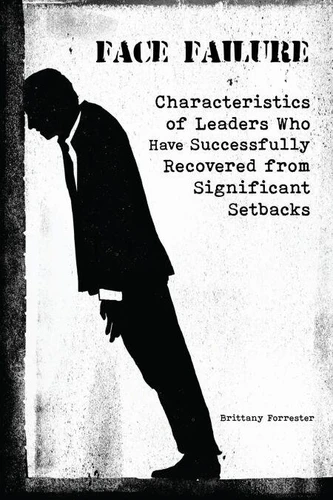Face Failure Characteristics of Leaders Who Have Successfully Recovered from Significant Setbacks
Par :Formats :
Disponible dans votre compte client Decitre ou Furet du Nord dès validation de votre commande. Le format ePub est :
- Compatible avec une lecture sur My Vivlio (smartphone, tablette, ordinateur)
- Compatible avec une lecture sur liseuses Vivlio
- Pour les liseuses autres que Vivlio, vous devez utiliser le logiciel Adobe Digital Edition. Non compatible avec la lecture sur les liseuses Kindle, Remarkable et Sony
 , qui est-ce ?
, qui est-ce ?Notre partenaire de plateforme de lecture numérique où vous retrouverez l'ensemble de vos ebooks gratuitement
Pour en savoir plus sur nos ebooks, consultez notre aide en ligne ici
- FormatePub
- ISBN8201580674
- EAN9798201580674
- Date de parution15/08/2021
- Protection num.pas de protection
- Infos supplémentairesepub
- ÉditeurJL
Résumé
The etymology of the word fail is derived from the French word faillir, which means "to almost do." Faillir is derived from the Latin word fallere, which means to deceive or lead into error. These definitions imply that when people fail, they do not follow through with their intentions, and those who believed that they would be in some way deceived. There can be a sense of shame felt by people who experience failure.
This emotional response can cause them to suppress their feelings, deflect the responsibility of the failure, neglect to learn from the valuable lessons, and thwart the possibility for future success. As Winston Churchill so eloquently said, "Success is not final, failure is not fatal: it is the courage to continue that count."
This emotional response can cause them to suppress their feelings, deflect the responsibility of the failure, neglect to learn from the valuable lessons, and thwart the possibility for future success. As Winston Churchill so eloquently said, "Success is not final, failure is not fatal: it is the courage to continue that count."
The etymology of the word fail is derived from the French word faillir, which means "to almost do." Faillir is derived from the Latin word fallere, which means to deceive or lead into error. These definitions imply that when people fail, they do not follow through with their intentions, and those who believed that they would be in some way deceived. There can be a sense of shame felt by people who experience failure.
This emotional response can cause them to suppress their feelings, deflect the responsibility of the failure, neglect to learn from the valuable lessons, and thwart the possibility for future success. As Winston Churchill so eloquently said, "Success is not final, failure is not fatal: it is the courage to continue that count."
This emotional response can cause them to suppress their feelings, deflect the responsibility of the failure, neglect to learn from the valuable lessons, and thwart the possibility for future success. As Winston Churchill so eloquently said, "Success is not final, failure is not fatal: it is the courage to continue that count."























